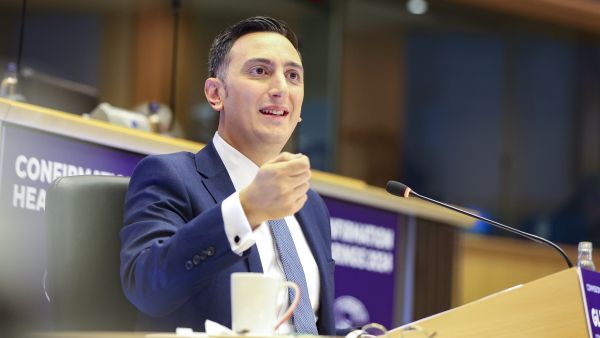The Socialists and Democrats in the European Parliament have supported the project of the European Solidarity Corps* since it was presented by the Commission in September 2016, and they have pushed for its quick implementation, for a clear distinction between the volunteering and the occupational strand, and for fresh funding.
After lengthy and difficult negotiations with the EU Council, tomorrow the Parliament will finally back a regulation that will allow the European Commission to launch a call for proposals to interested NGOs and companies in October 2018.
Following the parliamentary debate today Petra Kammerevert MEP, S&D chair of the committee on culture and education and author of the report on the European Solidarity Corps, said:
"Young Europeans are eager to help, as we see whenever there is a natural disaster or fellows are in a difficult situation, be it citizens or migrants. Until now, there was only a small project of the European Voluntary Service to channel all that energy, but their efforts were not recognised in any way. Nevertheless, it is crucial that every participant has access to a high quality preparation, professional accompaniment and evaluation.
“The European Solidarity Corps is a much more solid programme that will reinforce the sense of shared belonging and responsibility for young Europeans. It is a way to promote social engagement, European solidarity and citizenship, by offering cross-border life experiences to our youth.
"By working at the grassroot level with non-profit organisations we will be able to respond to specific local community needs, and the experience will be recognised as non-formal education or traineeship in the European CV. Furthermore, the Solidarity Corps will encourage member states to also set up national volunteering systems wherever they don’t exist.”
Silvia Costa MEP, S&D spokesperson in the culture and education committee, said:
"We want to send a strong message to young people under the age of 30, both with the Solidarity Corps and also with our battle in Parliament to triple the current funds for Erasmus for 2021/2027.
“The European Solidarity Corps will allow young people – both European and non-European residing in the EU – to fully experience what it means to be part of a transnational community, carrying out voluntary activities from two months to one year, also in the context of local projects yet always with a clear European dimension."
Brando Benifei, S&D Group the spokesperson on this issue in the employment and social committee said:
"We had to fight hard to make sure that the European Solidarity Corps will be accessible to all young people, while also offering high-quality measures. The S&D Group demanded and obtained adequate funding for the new programme, financed with a consistent share of additional resources, without touching the budget of other successful programmes for the young such as Erasmus+.
"During the negotiations, we managed to guarantee that work and volunteering are duly separated, for example with the introduction of separate quality labels to certify the adherence to the objectives and the charter of the programme.
“We also have insisted that youth and volunteering organisations are involved in the development and implementation of the programme. Civil society and participation must be strengthened at all levels in the EU, and particularly in anything related to the youth. The future of the EU is in their hands.”
* The main objective of the European Solidarity Corps is to promote and increase the social and civic engagement of youth and their active and supportive citizenship, also through the acquisition of competences. The EU Commission created a new programme with the current European Voluntary Service existing under Erasmus+ adding jobs and traineeships opportunities. 90% of activities will be of a volunteering nature and 10% for traineeships and jobs.








